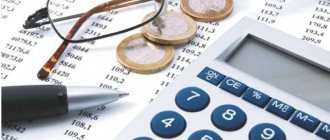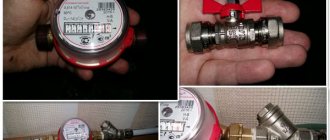President of the Federation of Migrants: “You don’t need to pay for a patent until June 15”
The Decree states that for the period from March 15 to June 15, 2020, the terms of patents that expire during this period are suspended.
After the publication of the Decree, the Federation of Migrants published several videos in which they categorically stated that no one needs to pay for a patent in the period from March 15 to June 15.
Federation President Vadim Kozhenov in the video refers to another document - methodological instructions prepared by the Ministry of Internal Affairs. He noted that this document is intended for internal use, its number according to EDMS is 1/4333. And this document says that there is no need to make advance payments until June 15.
What taxes do individuals pay: 8 main types!
The Tax Code of the Russian Federation provides for the following types of taxes for individuals:
- Income tax (personal income tax).
- Property.
- Transport.
- Land.
- Excise tax
- Water.
- Hunting fee.
- Fishing fee.
Naturally, any tax is calculated and paid only when there is an object corresponding to it. Now let’s take a closer look at what taxes individuals pay.
Personal income tax calculation: we must share!
The essence of personal income tax is revealed in its name - “tax on personal income”. The calculation and transfer of the personal income tax amount from wages is carried out by the employer. You need to declare and pay it yourself for the following types of income:
- From the sale of movable or immovable property that has been owned for less than three years.
- Received abroad.
- Rents from rental property.
- Winnings (lotteries, drawings).
- Other income.
Taxes for individuals are not paid on income received:
- From the sale of property that has belonged to you for more than three years.
- By inheritance.
- By gift from a close relative or family member.
Personal income tax is one of the main taxes that most of our fellow citizens pay. Personal income tax returns must be submitted by April 30 of the year following the reporting year. This means that the 2016 return must be filed by April 30, 2020. In addition to physical For persons who have received additional income, Form 3-NDFL is submitted to the Federal Tax Service by those who want to receive a tax deduction. We'll talk about it a little later.
Personal income tax must be paid by July 15 of the following reporting year, that is, the deadline for payment for 2020 is June 15, 2020. But first of all, let's figure out how personal income tax is calculated. The formula is very simple:
TAX AMOUNT = TAX RATE * TAX BASE.
The tax rate is a percentage of the tax amount. Tax base is the amount on which tax is paid, that is, the amount of income. There are five rate options for personal income tax:
- 9% is the least common rate and currently only applies to proceeds from mortgage-backed bonds that were issued before January 1, 2007.
- 13% is the standard rate at which most resident taxpayers pay tax from:
- salary,
- remuneration under civil law contracts (concluded for the performance of work, provision of services for a certain time period),
- dividends,
- profits from the sale of property.
- 15% – the rate applied to individuals. persons who are not residents of the Russian Federation, but receive dividends from Russian companies.
- 30% – applies to all types of income of non-residents of the Russian Federation, except dividends.
- 35% is the maximum personal income tax rate. The following income is taxed:
- winnings,
- income from deposits, deposits.
It is worth clarifying here: if the annual interest does not exceed the refinancing rate at the beginning of the year (8.25%) + 10%, then such profit is not subject to personal income tax. Accrual occurs only on an amount that exceeds 18.25% of the invested funds. We are talking about rubles. If the deposit is in dollars, then all income over 9% of the money invested is accrued.
- Income from fees for the use of borrowed funds of the CPC, and agricultural CPC.
Now let's return to the question of tax deductions - expenses taken into account for tax purposes.
Firstly, only personal income tax payers can reduce the tax base or return part of previously paid taxes at a rate of 13%.
Secondly, there are 3 types of deductions for individuals (not individual entrepreneurs):
- ¾ standard (for children, for “themselves” disabled people of the Second World War, heroes of the Russian Federation, Chernobyl victims), social (amounts spent on education, charity, treatment, accumulation of pensions),
- ¾ property (when purchasing or constructing housing)
- ¾ professional.
Thirdly, physical Non-resident persons do not have the right to receive these deductions. The topic of tax deductions is covered in detail in Articles 218-221 of the Tax Code of the Russian Federation.
Taxes for individuals: property obliges!
Individuals are required to pay property tax (IT) if they own real estate:
- House, apartment, room.
- Garage or parking space.
- Unfinished buildings.
- A complex of buildings and structures united by a common goal.
- Other buildings.
Since 2020, the process of calculating the ID base has undergone significant changes. Now the value of a property is calculated not according to the inventory value, but according to the cadastral value. At the end of 2016, these changes affected 28 constituent entities of the Russian Federation, and by 2020 they will cover the entire country. This was done to reduce the tax burden on the population, using a system of tax deductions depending on the type of object:
- ¾ apartment – 20 m²;
- ¾ room – 10 m²;
- ¾ house – 50 m²;
This amount must be subtracted from the area of the home before calculating the amount to be paid. What's interesting is that you don't have to do it yourself. The Federal Tax Service will send a notice to each owner of real estate about the need to pay tax.
Rates vary from 0.1% to 2% of the cost. It all depends on the type and size of housing, as well as on the locality, since property tax is local. This means that the right to determine the rate belongs to local councils: for residential premises - from 0.1 to 0.3%, for commercial and expensive real estate - up to 2%, other - up to 0.5%.
Transport tax liability: the more horses, the more difficult it is to keep them!
Transport tax is paid on any vehicle that is subject to state registration. Its owner is annually sent a letter indicating the tax base and calculating the amount of payment. Payment details are attached to the letter.
The current tax period will be due in the next calendar year. So in 2020, the car owner was paid for 2015. By the way, payments must be made before December 1, otherwise penalties will begin to accrue. If you want to check the correctness of the amount indicated on the receipt, there is a special calculator on the official tax website.
Among the most significant factors for calculating the amount of tax, we highlight:
- Region of registration of the car owner. Each region has its own rates, as well as increasing coefficients.
- Horsepower. Perhaps one of the main factors, because the tax is calculated depending on their quantity. In this case, a diversified system is used. For example, in Moscow for every hp. "passenger cars" up to 100 hp you need to pay 12 rubles, from 100 to 125 hp. - 25 rubles and so on.
- Price. For cars whose cost exceeds 3 million rubles, an increasing factor is provided from 1.1 to 3, depending on the age of the car and type.
- Type of vehicle, since each of them has its own odds and rates.
If you do not agree with the accrued tax amount, please contact the Federal Tax Service office at your place of registration or contact center.
Land tax: if you have it, value it, if you value it, pay it!
Every individual who owns a land plot, either the right to own it for life, or the right to use it indefinitely, pays tax. The rate can vary from 0.025% to 1.5%, which is at the discretion of local councils. You can check information for your region on the Federal Tax Service website. The tax base is determined based on the cadastral value of the land plot.
The payment deadlines are the same as for transport tax: until December 1 of the next year. Declarations are not submitted, and the tax is calculated by tax office specialists, after which a notification is sent to the owner’s place of registration. It usually arrives one month before the payment deadline. If this does not happen, then it is better to take the initiative yourself and find out how much and where to pay so that penalties do not start accruing.
Excise tax: the border is locked!
An excise tax is a federal indirect tax. Not many people know that individuals (not individual entrepreneurs) can also be excise tax payers. This is possible when importing/exporting excisable goods through customs (Article 179 of the Tax Code). These are:
- Alcohol.
- Products that contain alcohol with a mass fraction of more than 9%.
- Alcohol products.
- Tobacco products.
- Vehicles: cars, motorcycles (from 150 hp).
- Fuel: diesel, household stove and gasoline.
- Motor oils.
Taxes for individuals on the import/export of excisable goods are covered in more detail in Article 181 of the Tax Code of the Russian Federation.
Water tax: we pay for cleanliness!
Water tax is paid by individuals (not individual entrepreneurs) only when water is drawn from an artesian well. To drill such a water well, you need to obtain a license. The withdrawal of water from shallower water horizons for personal use is not subject to taxation and licensing.
Calculation of tax liabilities, as well as their payment, is the responsibility of the taxpayer. The rate for 2020 is 93 rubles per unit of volume, that is, per 1000 m³. For owners of wells that do not have meters installed, an increasing factor of 1.1 is applied. A gradual increase in the tax rate is planned until 2025. The tax base is the volume of water pumped out over a certain period of time. Returns must be submitted and taxes paid by April 20, June 20, October 20 and January 20, for the 1st, 2nd, 3rd and 4th quarters, respectively.
It may seem that an artesian well is very beneficial (comparing it with tap water). But do not forget that the cost of drilling, documentation, plus obtaining a license is about 1 million rubles. Depending on the region of the country, this amount can reach 2 million rubles.
Hunting fees: the more catch, the more tax!
This type of federal tax is paid by individuals who have received permission to hunt:
- areas that are in the public domain;
- territories that are assigned to individual entrepreneurs or legal entities;
- natural areas with enhanced protection.
The amount of the fee is calculated using the rate in kind and the number of animals. The rate for each type is set separately. You can find the list in Article 333 of the Tax Code. The fee is paid simultaneously with obtaining the permit. Phys. persons (not individual entrepreneurs) do not provide reporting on this type of collection.
Fishing fees: a small fee for a big catch!
Article 333 of the Tax Code lists marine biological species for the catch of which a fee is paid. But before you start fishing, you must obtain permission. The formula for calculating the fee is standard:
Amount = Amount of catch*rate provided for this species.
The fee is paid in stages. The first is a one-time contribution (10% of the total amount). The second stage is regular contributions ((total amount - one-time contribution)/number of months for which the permit was issued). The third stage is payment of a one-time fee no later than the 20th day of the month following the month the permit expires. Physical reporting is not available to individuals.
Lawyers: “You need to pay for a patent”
Lawyers have a different opinion. For example, lawyer Dmitry Yaroshenko recorded a video in which he noted that from a legal point of view, the document can be understood as follows:
- if the patent expires between March 15 and June 15, then until June 15 you can continue to work without a patent. There is no need to pay for it.
- if the patent expires after June 15 , then you need to continue to pay for the document and renew it, otherwise it will be cancelled. That is, if the patent expires, for example, on June 16, then it must continue to be paid.
The same position is shared by lawyer Roman Stepanov .
— If the patent does not expire from March 15 to June 15, then it must be paid as usual. If this is not done, the patent will be considered invalid, which will entail the need to subsequently obtain a new patent, the lawyer noted in a publication on his Facebook page.
At the same time, the lawyer admits that so far the situation with payment for the patent is very controversial and clarifications from the Ministry of Internal Affairs are needed.
You sold property: do you need to pay tax?
What is the right thing to do if you sell property? Receiving money from the sale of a car or apartment is income from which you must pay 13% to the state. But this rule does not always work. If you have owned the property for 3 years or more, you can sell it and not pay taxes. Article 217.1 of the Tax Code of the Russian Federation talks about this in more detail. It is important how you received the property.
There are three conditions for receiving:
- you were given property by family members or close relatives or it was inherited from them;
- you received property as a result of privatization;
- you are an annuity payer and received property under a lifelong maintenance agreement with dependents.
If at least one of them is met, then you do not have to pay tax after selling the property if you owned it for at least 3 years. If none of the three conditions are met, it would be correct to either pay the tax or sell the property after 5 years of ownership. Also, income from the sale of an apartment will not be taxed if it costs 1 million rubles or less, and income from the sale of a car if its price is no more than 250,000 rubles. To do this, you will need to issue a property deduction.
What do they say at the Ministry of Internal Affairs?
The Ministry of Internal Affairs has not yet given any official explanation regarding the issue of paying for a patent. The department published an interview with the head of the Main Directorate for Migration of the Ministry of Internal Affairs, Valentina Kazakova, in which she comments on Putin’s Decree. But here, too, the issue of paying for the patent was not raised.
There are many messages on social networks from foreign citizens who called the departments of the Ministry of Internal Affairs of different regions and received an answer that they needed to pay for a patent.
Screenshot from the social network VK
Screenshot from VK
Screenshot from VK
Is it possible not to make contributions to funds for major repairs?
Contribution for major repair work is mandatory, although until recently, this practice worked on a voluntary basis. Today, if not everyone, then the majority must pay. Only certain categories of citizens receive benefits for getting rid of fees:
- residents of houses that are recognized as unsafe (the money that was contributed to the fund of the building in question must be returned);
- if the residents separately hire a team of workers who will repair the troubles that have arisen without forming a fund, and disbursing money after the work has been completed;
- if residents sacrifice the façade of the building to place banners and other advertising paraphernalia on it, and spend the funds received on contributions for major repairs.
But this practice is used relatively rarely, since ignoring contributions often plays a cruel joke on residents when it becomes necessary to pay for major repairs, but there is no money.








